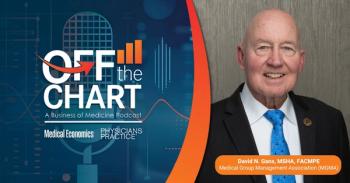
Managing a Medical Practice During Difficult Economic Times
Running a medical practice is hard enough, but when the economy adds stressors, it gets even harder.
It is no secret that running a medical practice and being a practicing physician simultaneously carries with it several pros and cons. In years past we were able to see modest improvements in the overall bottom line. This was reflected with an annual increase in patient visits, increases in payments from insurers and an almost never ending supply of patients requesting treatment from the office.
However, this year has been different compared to previous years. The current economic slowdown nationally is having an impact on medical practices and hospitals. Patients are procrastinating in terms of complying with office follow-up visits. Patients do not want to have routine preventive care services performed. Patients are finding an endless array of excuses to explain not being able to pay their office copayments and deductibles. Couple these observations with the annual increases observed with medical supply costs, raises for employees, and increased healthcare premium costs and you have a recipe for a dismal bottom line. There are several reasons for the observed slowdown and I will describe the most common ones.
Patients are feeling the pinch from almost every direction. Gas prices are going up again, unfortunately. Not only is the pain felt directly at the pump, but the increased cost of purchasing fuel takes away from the small amount of discretionary income that patients could potentially use for dining out, travel, and other recreational activities. The business owners of those targets of lowered spending are naturally reacting by laying off employees and decreasing their benefits. This results in fewer patients being able to comfortably afford medical care. Not only is the price of fuel increasing, but the price of food, utilities, and other services must increase their charges to patients in order to absorb the higher costs of operating their businesses.
Hospitals are feeling the pinch as well. Insurance companies are shifting their costs to beneficiaries by increasing their responsibility for higher copayments, higher payments for medications, and imaging procedures. Since most patients will continue to attempt to get their prescriptions renewed, they will try to avoid the cost of seeing their physician.
As patients are feeling the pressure to increase their take home pay, they will do their best to work longer hours and avoid taking time away from work to come to the office for medical care. Medical practices like ours have reacted to this change and are offering after-hours services so that patients can come in after their shift has ended. Even though this convenience is available, fewer and fewer patients are taking advantage of it.
We are definitely finding ourselves in times different from years past. Couple the economic woes mentioned above with the grueling presidential election in the distant future, who knows where the answer lies? Does anyone specifically know how to remedy the problem? Who knows. However, medical practices will continually be forced to adapt to the ever changing economy and at the same time, we must continue to provide the best care possible for our patients.
Find out more about Scott Litton and our other
Newsletter
Optimize your practice with the Physicians Practice newsletter, offering management pearls, leadership tips, and business strategies tailored for practice administrators and physicians of any specialty.









